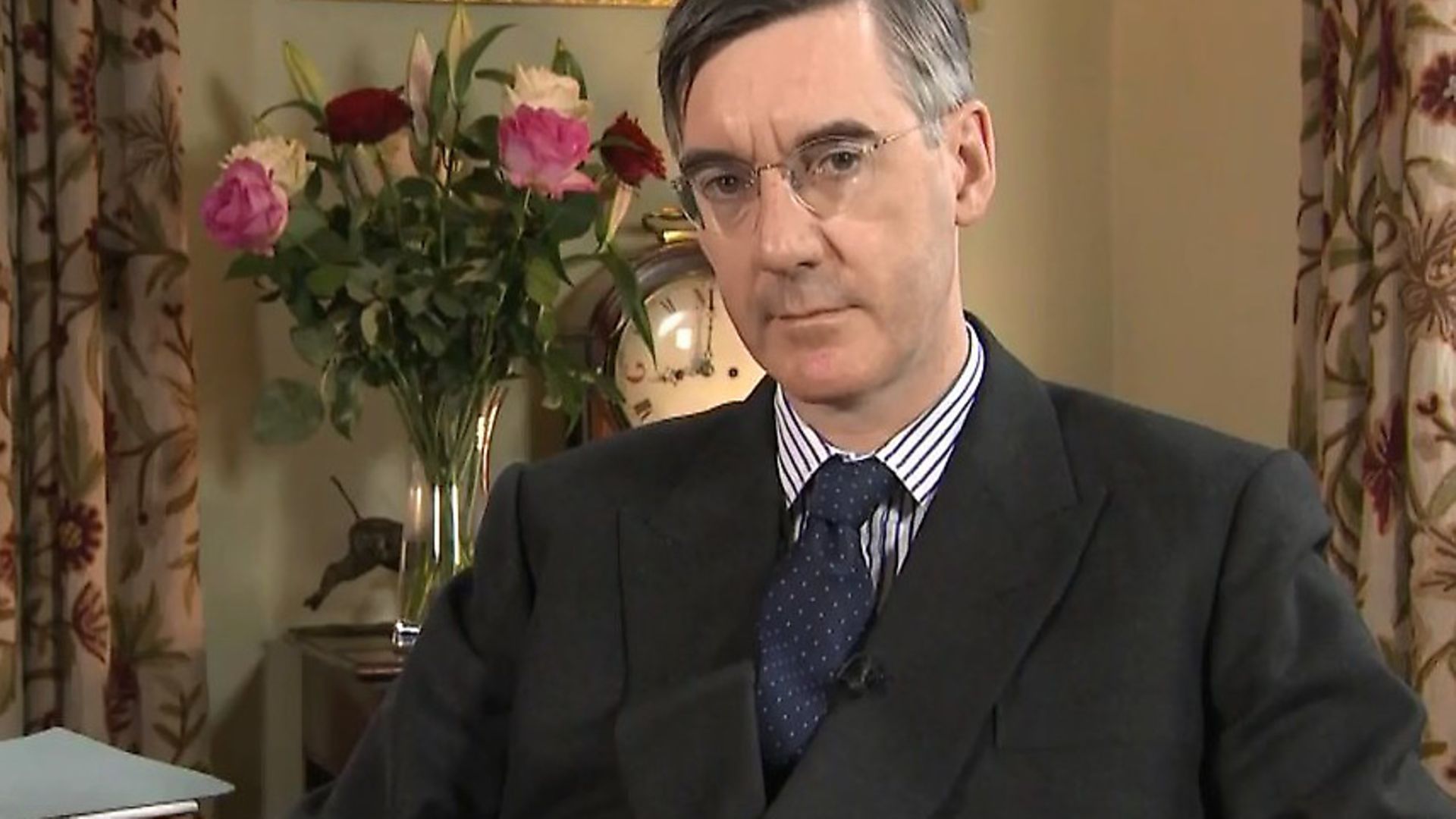
Jacob Rees-Mogg has said that his call for Britain to be ‘disruptive’ at the European Union if it remains a member was not proof that we have ‘democratic control’.
He explained that he would urge the leadership in the Conservative party to rebel against the European Union in votes wherever possible.
He told Sky News: ‘If we are forced to stay in, we should be the most difficult member possible. Because I don’t think the EU and its jargon has behaved towards us with sincere co-operation.’
That is despite the chair of the European Research Group leading the rebellion against the Brexit deal which meant Theresa May has had to require extensions.
He continued: ‘I don’t think sincere co-operation could possibly include trying to break-up the unity of a member state when it leaves the European Union and therefore I think we no longer are obliged to follow sincere co-operation in return.’
He suggested ways in which Britain could make it more difficult for the EU.
‘When the annual financial framework comes forward, if we’re still in, this is our one in seven opportunity to veto the budget and to be really very difficult. I hope that any British prime minister would take that opportunity.’
‘Many things now are taken over by majority vote and there’s nothing we can do about them. In terms of the budget, each annual budget is set by majority voting. But the seven year budgetary framework requires unanimity, therefore we could veto that. We also could stop Mr Macron’s plans for further deep integration, as those would require treaty change, so if those began to progress and we were still a member we would be able to stop them.’
‘These would be things that wouldn’t be difficult for their own sake, but would be in the British national interest if we were still a member state.’
Jacob Rees-Mogg, however, denied that this was a sign that Britain had a great deal of say in the European Union.
‘I don’t think they’re looking at the detail. We can veto the budget one year in seven, but the other years we have to take the budget that is delivered under that framework. All our laws on agriculture, on fishing, on trade come from the European Union and we can be outvoted. We are one of 28 members. That we can’t set our own VAT system in detail, we can’t take VAT off domestic fuel for instance, little things like that, that are very important to people’s livelihoods.
‘So no, no, this doesn’t undermine the general view that far too many laws come from the European Union and we don’t have democratic control over them. All it does show is if they keep us in and haven’t behaved with sincere co-operation. What is sauce for the goose is sauce for the gander.’
Rees-Mogg also praised Boris Johnson, whose leadership prospects have been boosted by speculation about an alliance with Remain-leaning cabinet minister Amber Rudd which has been dubbed ‘Bamber’ by Westminster insiders.
‘I think very highly of Boris Johnson, who managed to win in London twice in a Labour area – has a great connection with voters.
‘He is a clear Eurosceptic but otherwise is very much in the middle of the Conservative Party. He is not particularly a factional character beyond the European issue and therefore I think could unite the party and win an election.’
He said he ‘thought highly of Amber Rudd’ who was a person of ‘first-class capabilities’.
‘There will come a time, though we may find this difficult to believe at the moment, when there are other things to talk about than Europe, and at that point we will need all the talents that are arrayed within the Tory party, not just those of Brexiteers.’
Warning: Illegal string offset 'link_id' in /mnt/storage/stage/www/wp-includes/bookmark.php on line 357
Notice: Trying to get property 'link_id' of non-object in /mnt/storage/stage/www/wp-includes/bookmark.php on line 37






